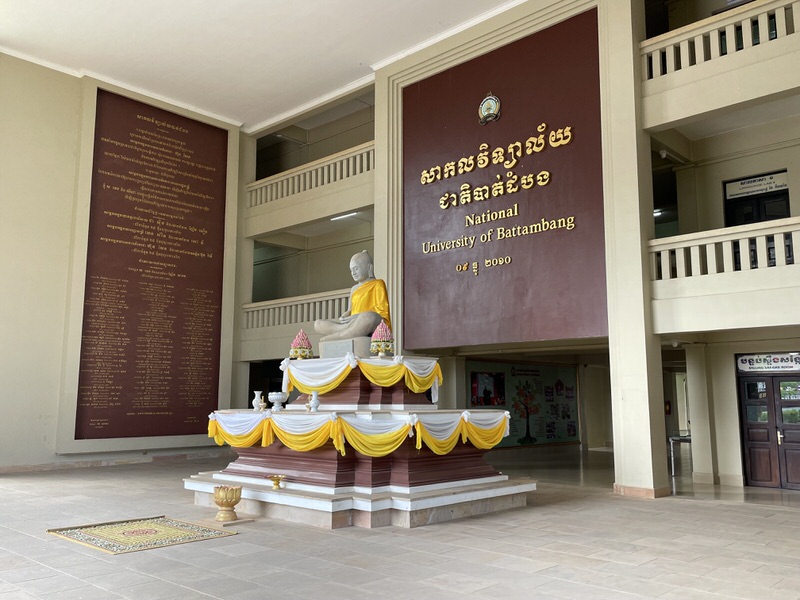In the previous articles, we have discussed the global challenges in education and the situation in the primary and secondary educations. This article will discuss the challenges for higher education and research.
 |
 |
| © Murat Yildizoglu |
The higher education and research (HER) system in Cambodia suffers from some significant fragilities:
-
Low direct public funding (the lowest in the region) has led to a de facto privatization of public universities through paid master’s programs (despite the absence of scholarships for master’s level students), in addition to a very strong presence of private institutions (80 institutions out of the current 120), not always of satisfactory quality. Scholarships for deserving students at the bachelor’s level only cover tuition fees, and 58% of these scholarship recipients cannot access university.
-
A consequence of the previous point is the difficulty in developing academic research, which has no direct value in this HER “economy”. Two successive loans (each for six years and 90 million USD) from the World Bank aim to support research. A third loan (60 million USD over five years) is in preparation. These loans are mainly dedicated to STEM fields and funding for new building construction, laboratory equipment purchases, and research projects through annual calls for proposals. However, there are concerns that their effects may not be sustainable without restructuring universities.
-
Insufficient structuring of universities to develop and implement their strategies effectively. An exception is the Institute of Technology of Cambodia (ITC) which, thanks to support from a consortium of mainly French and Belgian universities and engineering schools, has implemented a remarkable process of structuring and continuous improvement. Cooperation with France is essential in this development, notably allowing one or two ITC students to join École Polytechnique each year.
-
Somewhat archaic recruitment processes for civil servant teachers, leading to a skills deficit at the time of recruitment and a lack of continuous training for teacher-researchers due to a lack of critical mass in each university. Only 8% of higher education teachers have a doctorate.
-
Low scientific or professional competency levels obtained through university training compared to Cambodia’s development needs.
-
Difficult coordination of the higher education and research institutions, as they depend on seventeen ministries.
These challenges highlight the need for comprehensive restructuring reforms and increased investment in Cambodia’s higher education and research sector to improve its quality and relevance to the country’s development strategy and needs.